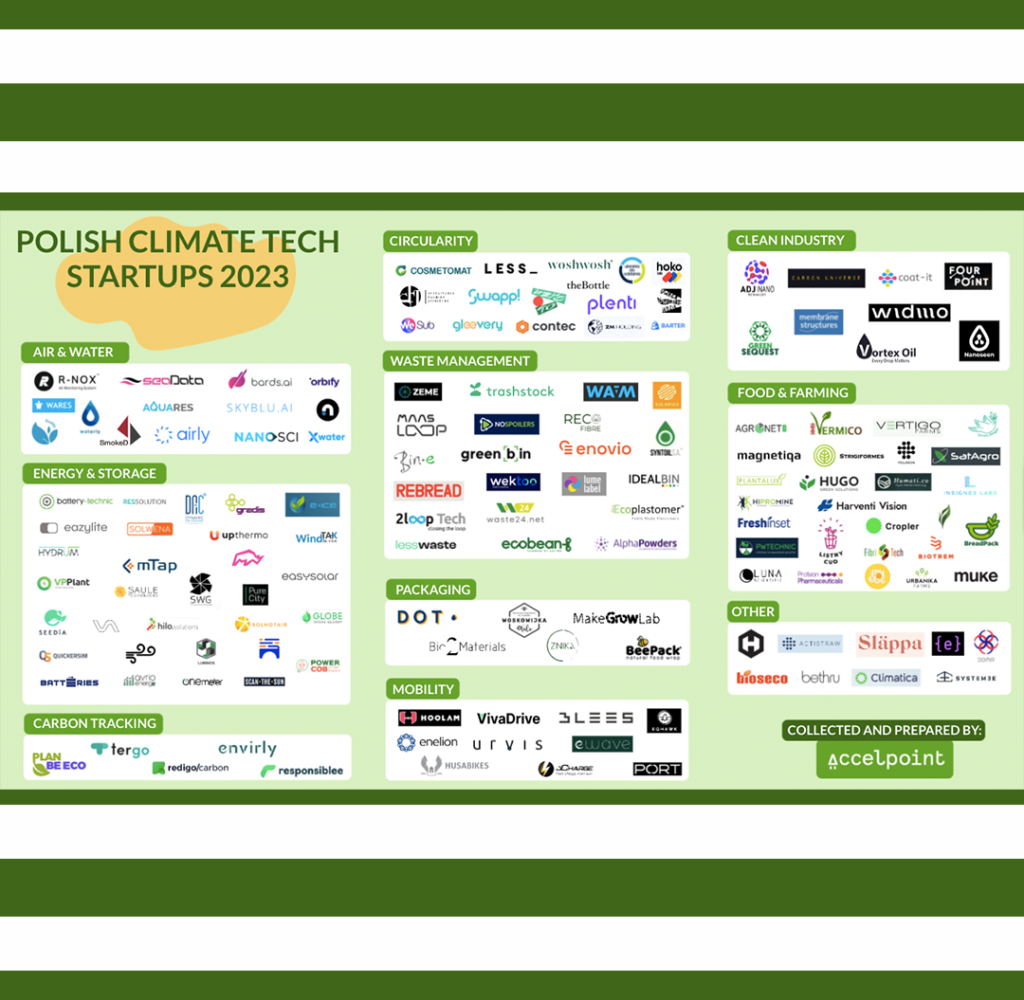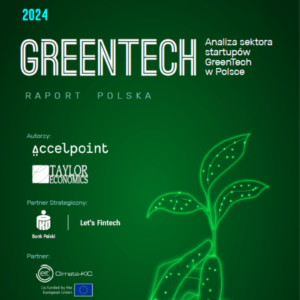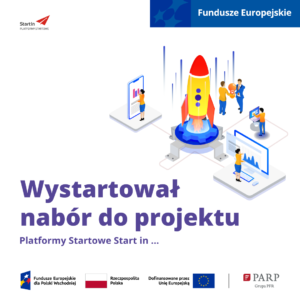We are very proud to present the first, complex map of Polish startups active in the field of climate tech and sustainability. In addition, we summarise the European market situation in which the green startups coming from our region are currently operating.
🌱 DOWNLOAD THE PDF VERSION WITH LINKS TO STARTUP ACCOUNTS
Introduction: Startups in the Central and Eastern European (CEE) region are increasingly playing a vital role in driving sustainable development and greentech innovation. However, these startups face specific challenges unique to their region while operating in the fields of sustainability and greentech. This article explores the major hurdles CEE startups encounter and examines how planned legislative changes at the European Union (EU) level can influence their efforts.
- Access to Funding: Access to funding remains a significant challenge for CEE startups in sustainability and greentech. Compared to more established startup ecosystems in Western Europe, CEE startups often struggle to attract sufficient investment. However, the upcoming legislative changes proposed by the EU, such as the European Green Deal and the European Innovation Council, aim to enhance support for sustainable startups through dedicated funds and initiatives. Leveraging these opportunities can help CEE startups secure the necessary funding for growth and innovation.
- Lack of Awareness and Market Maturity: CEE markets may have lower awareness and maturity levels concerning sustainable practices and greentech solutions. Startups in the region face the challenge of educating both consumers and businesses about the benefits of sustainability. The EU’s legislative changes, such as the EU Sustainable Finance Taxonomy and Green Bond Standard, can contribute to raising awareness and building market maturity. These regulations encourage transparency and sustainable investments, fostering a more conducive environment for CEE startups to promote their solutions.
- Collaboration and Networking Opportunities: Establishing strong networks and collaborations within the sustainability and greentech ecosystem is essential for CEE startups. Limited networking opportunities and a lack of connections to potential partners can hinder their growth. The EU’s legislative changes, coupled with initiatives like the European Innovation Council (EIC), Horizon Europe, and the European Institute of Innovation and Technology (EIT), can provide CEE startups with access to a broader network of stakeholders, including investors, corporates, and research institutions. Engaging with these initiatives can facilitate knowledge exchange, partnerships, and collaboration across borders.
- Talent Acquisition and Retention: Attracting and retaining top talent is a common challenge for startups, and CEE is no exception. The region’s startups may face difficulties in recruiting skilled professionals with expertise in sustainability and greentech. The EU’s legislative changes, such as the proposed European Education Area and the Digital Education Action Plan, can help address this issue by promoting educational programs and fostering a skilled workforce specialized in sustainability. These initiatives can strengthen the talent pool and ensure a steady supply of qualified professionals for CEE startups.
- Regulatory Environment and Policy Alignment: Harmonizing regulations and policies across CEE countries poses a challenge for startups operating in the region. Diverse legal frameworks and regulatory inconsistencies can hinder cross-border operations and scalability. The EU’s legislative changes, including the European Green Deal and the Circular Economy Action Plan, aim to align policies and regulations across member states, providing a more favorable environment for startups. Enhanced policy coherence can streamline operations and facilitate the expansion of CEE startups into broader European markets.
Conclusion: CEE startups in the sustainability and greentech sectors face unique challenges that require targeted support and collaboration. Access to funding, market awareness, networking opportunities, talent acquisition, and regulatory alignment are key focus areas for these startups. The planned legislative changes at the EU level, such as the European Green Deal and other related initiatives, present significant opportunities for CEE startups to overcome these challenges. By leveraging these legislative changes and fostering cross-border collaboration, CEE startups can drive sustainable development and greentech innovation in the region, contributing to a more sustainable future for Europe and beyond.






